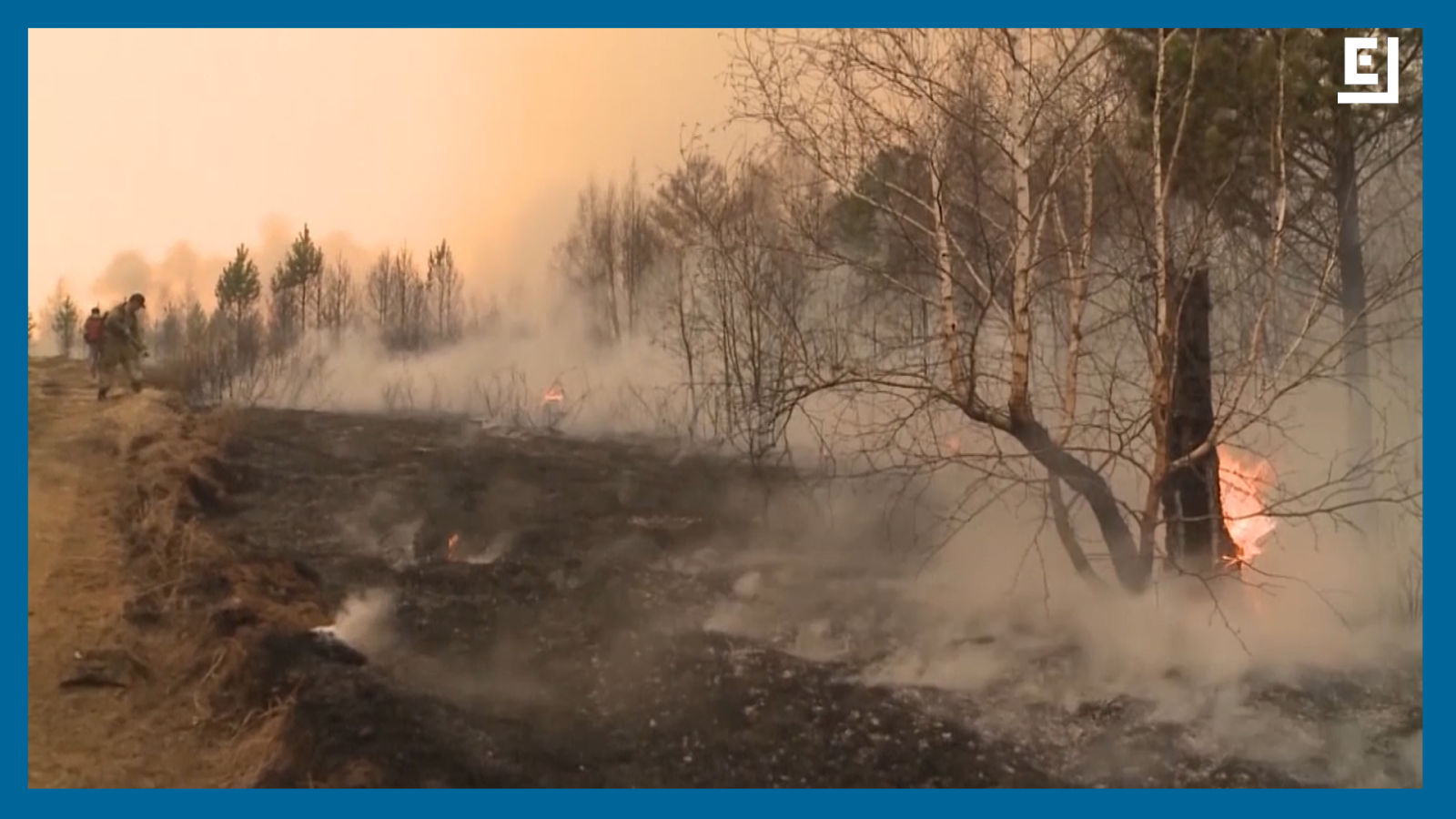It’s spring in an era of rapid climate change so that means Russia is being lit up by monster fires. But in an era of coronavirus, a confluence of factors has made the wildfires even worse.
Russia has had a rough go of it this year. It set a record for its hottest winter ever and Moscow basically skipped the season entirely. The heat has continued into spring, and now, the Siberian countryside is on fire. Emergencies Minister Yevgeny Zinichev called it a “critical situation,” according to the Siberian Times.
Advertisement
Thomas Smith, a geographer at the London School of Economics, told Earther that there are roughly 5 million acres of forest and grassland ablaze in Russia. The largest fire clocks in around 1 million acres alone, or basically the size of Glacier National Park. Towns have been caught up in the fires with hundreds of structures wiped out and smoke clogging the air, making it hard to breathe. “Critical situation” might be an understatement.
Many of the blazes appear to be human caused, but extreme heat is fanning the flames. The winter warmth means that snowpack disappeared quickly, drying out vegetation and the soil. Conditions throughout April and into May have been freakishly warm as well. In recent days, temperatures have spiked as much as 36 degrees Fahrenheit (20 degrees Celsius) above normal for this time of year, and the heat is expected to hold for at least the next week.
This is all shocking and yet sadly on trend. The boreal forest that rings the northern tier of the world is burning at a rate unseen in 10,000 years. Rising temperatures have played a role by drying out forests and priming them to burn and creating conditions where fires are more likely to spread. That releases carbon dioxide, ensuring ever larger fires by heating up the planet further.
The coronavirus could also be making matters even worse. The lockdown is likely helping drive the fires. Russia’s lockdown started with a focus on Moscow in late March. It’s since spread to the rest of the country and been extended until May 11. Many city residents left for the countryside to have more space and have been ignoring fire safety rules, according to the Siberian Times report. The economic slowdown is also making it harder to muster resources to fight the flames.
What’s happening in Siberia is a preview of what’s to come in other parts of the world. The Amazon’s dry season is about to get started and could be worse than last year’s dangerous fire season. In western North America, wildfire season is also just around the corner. For California in particular, the challenges could be severe after the state received only half of its normal precipitation over the winter. Climate change is complicating wildfire season there, and coronavirus will only complicate it further.

